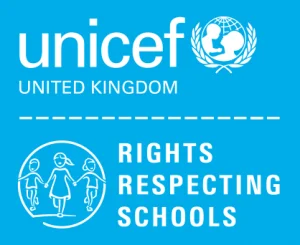The overall objective of the Religious Studies curriculum aspires to encourage pupils to tackle the misconceptions and misunderstandings people have about others in society and the world. The subject aims to challenge students to develop their critical thinking by introducing a variety of ethical issues that they may not otherwise discuss in their private or social circles. In Religious Studies, we want to build an awareness of the impact people’s beliefs have on their lives, but also on society. We want the students to understand that we live in a diverse world, and that we should respect others, learn about the similarities that unite us, but also understand the differences we have and celebrate them. From Y7 to Y8, students look at the major religions, thus ensuring they get insight into the lives and beliefs of people from other religions and ways of life. In doing this, we allow pupils to understand the multi-faith and multicultural society that the UK and Jersey is. In Year 9, looking at certain ethical issues and themes, encourages students to look at how different communities have differing opinions and views. In Religious Studies, we try to encourage differing views, but ensure our high expectations are not compromised, by challenging anything that may be seen as disrespectful.
The AQA GCSE specification we cover allows us to continue to promote British and Jersey Values through a range of topics that are relevant to British Society and relate them to Christian and Muslim teachings. This builds on the students’ understanding of these religions from KS3 and further encourages the sharing of carefully thought out, well evidenced opinions.
What underpins what you do from key stage 3 to 4?
The structure of the curriculum is a gradual move from the study of religions in Y7, to the study of Religion and Ethics. The foundations of the 6 major religions the students gain in year 7 and 8, aim to challenge many of the misconceptions pupils may have. This is something that continues in the concepts we cover in Y9, 10 and 11. In year 9, we start to discuss some ethical matters, and try to encourage students to start thinking critically. In Y10 and 11, critical thinking skills are further developed and the skills needed to be successful in the GCSE are also incorporated.
In Year 7 and 8, pupils are taught about the 6 major religions. This refreshes what they have learnt at KS2, and builds on that knowledge to give them a firm basis of the 6 major religions.
In Year 8, we take what has been taught and apply it to everyday circumstances. We look specifically at the Muslim and Christian faith and what these religions say about the importance of family, what makes decisions right or wrong, and what is humankind’s purpose. The aim of Y8 is very much to begin to develop the pupils’ ability to compare and contrast differing views, and to be able to explain some of the similarities and differences that they learn. These are important skills to be able to introduce to pupils because, it will encourage a pupils personal growth. This is because pupils will be able to look at differing viewpoints on certain matters, which will aid them in developing more rounded views of their own. In Year 9 we look at social justice and religion, and look at the life of Malala, Martin Luther King Jr and Malcolm X, discussing the contributions they have made to ensure justice in their society, and their importance in history. We look at how religion influenced them in their activism. Students then look at Medical ethics and explore the issues of morality. In Year 9, there will be a real emphasis on encouraging pupils to engage in discussions, formulate their opinions, and use their knowledge of the similarities and differences between religious viewpoints to write an informed explanation about the topic being studied. The content in Y9 lends itself very well to supporting the pupils to practise and develop these skills. At the start of KS3, we look at a range of different religions, cultures and traditions, which mean that the pupils are introduced to language that they may not be familiar with. The religious terminology is introduced at a basic level initially where sheets are differentiated enough to allow all pupils to access the key terms. Then over the course of the topic, the key terms will be retrieved during various differentiated activities which try to embed the language into the student’s vocabulary. As the students get older, they are introduced to more ethical keywords that they begin initially to look at in Year 8, but at a deeper level in Year 9. Year 10 – GCSE – We look at the themes “Relationships” and “Life and Death.” Due to the mature nature of some of the topics in these units, as a department we believe that it is best for the pupils to be slightly older in order to fully appreciate the sensitive nature of these units. Year 11 – GCSE – We look at Christianity and Islam, and the beliefs and teachings, as well as practices of both religions. Due to the level of depth and complex beliefs and practices within Christianity and Islam, it was decided that the pupils will have, by this stage, developed the necessary skills to be able to analyse the Christian and Muslim religions to a good standard.
We chose the AQA specification, as we believe that the level of misinformation about religion in modern society, particularly with regards to Islam, mean we have a duty to ensure that pupils leave Haute Vallée School as informed and accepting of differences as possible. This specification allows us to do just that.
Pupils in all key stages are set homework in accordance with school policy. It is at the discretion of the teacher as to what the homework is that is set. A range of homework is offered and include activities that involve research, revision, comprehension tasks, extended writing opportunities, worksheets to be used as starter activities in the next lesson, retrieval tasks and much more. The emphasis in the homework that is set focuses on enhancing pupil knowledge with specific activities which will help with learner progression.
In each year group, the assessments that students complete test different skills. In Y7, the primary focus of assessments is retrieval. Y8 assessments assess retrieval and making connections between people’s beliefs. As the course is enrichment for Y9 no formal assessments takes place however students are continually informally assessed. Y10 assessment tests retrieval, making connections, forming and justifying opinions. Finally, Y11 assessments examine students’ ability to consolidate the skills that they have learnt over the two key stages, and additionally test their analysis skills. The assessments and the pupils proficiency in them, will highlight the progress that the pupil has made over time; with the aim that pupils demonstrate the skills that have been learnt throughout the year groups

